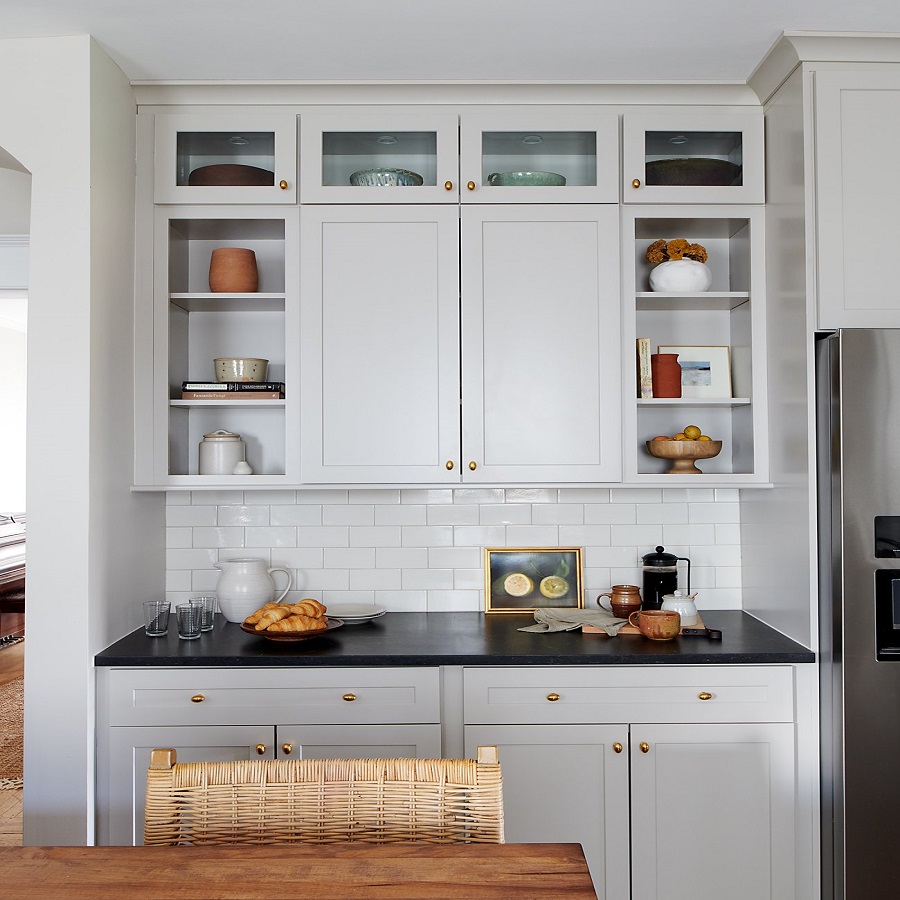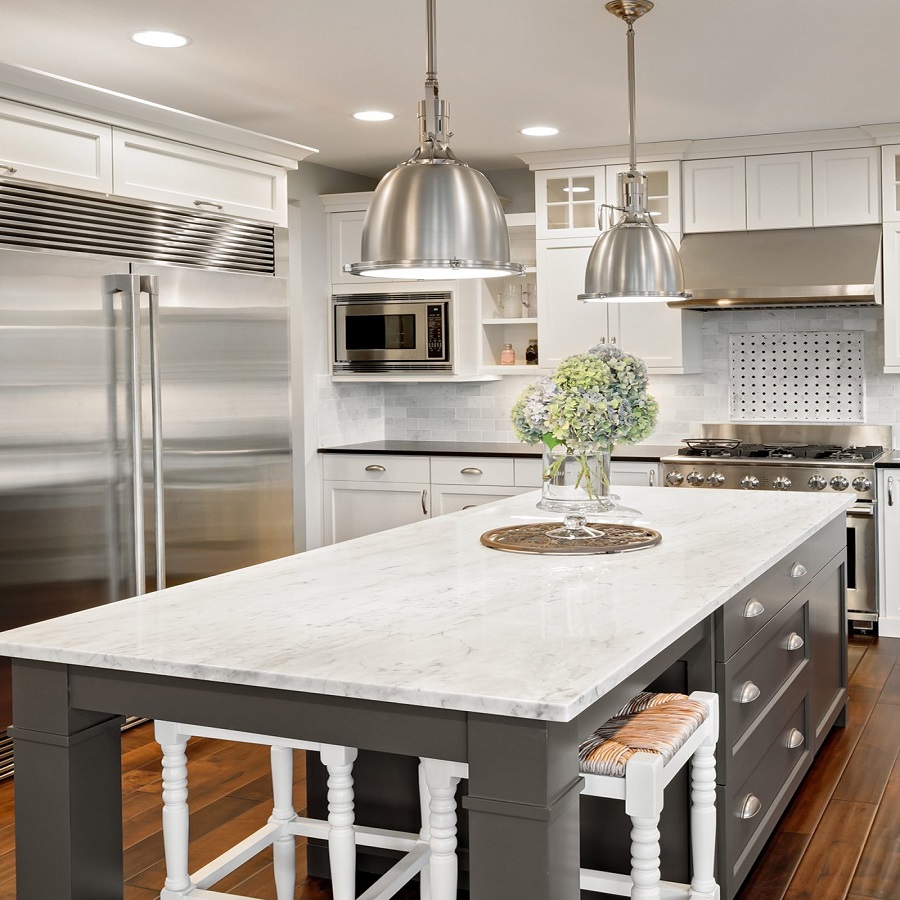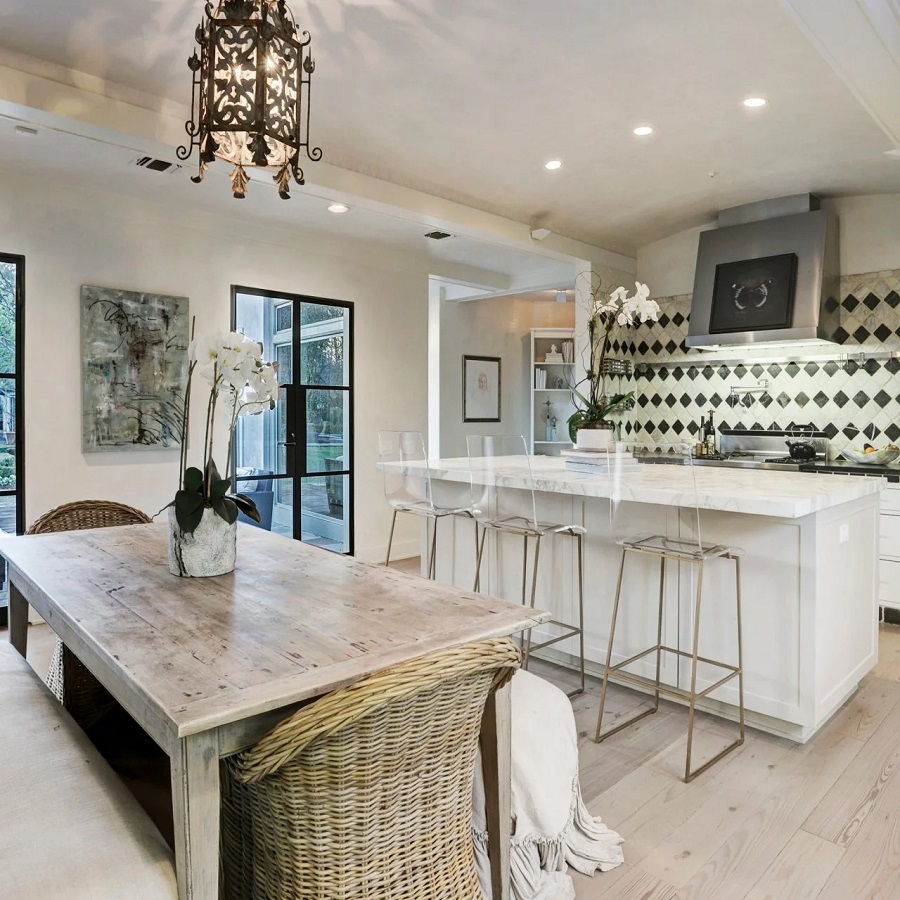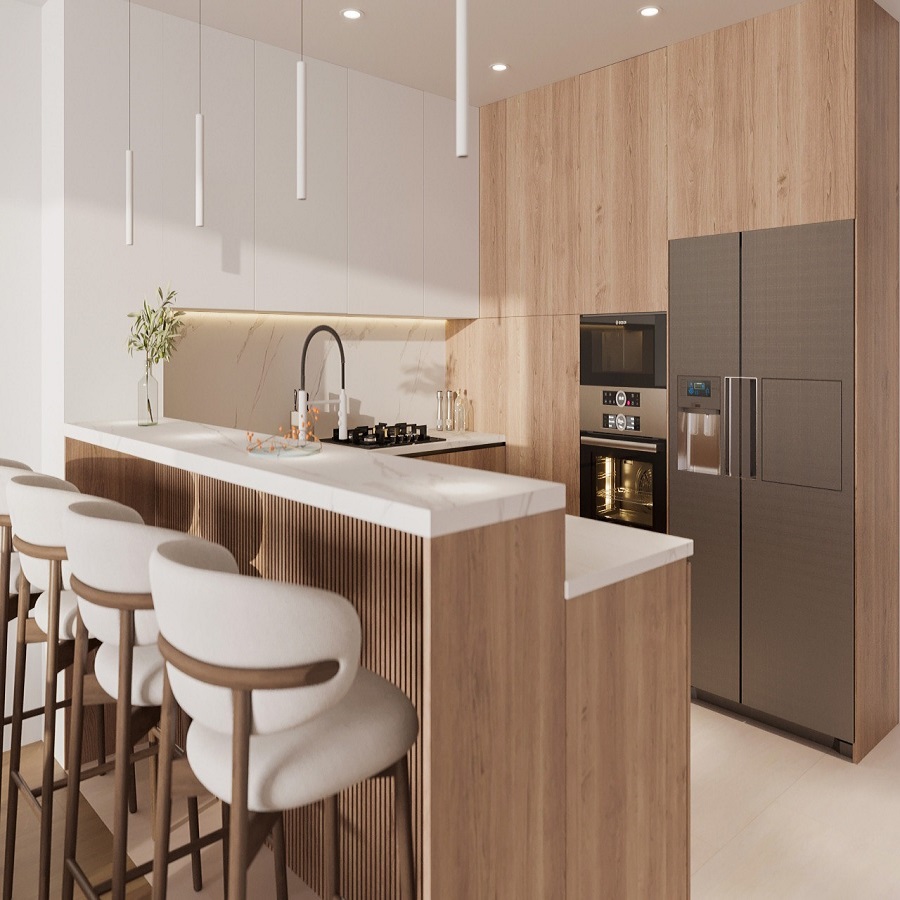Introduction
Remodeling your kitchen is a significant undertaking that can dramatically enhance the functionality, aesthetics, and value of your home. However, it requires careful planning and execution. If you’re considering a kitchen remodel in 2025, understanding realistic timelines is crucial for a smooth and successful project. Below, we outline a typical timeline, factors to consider, and tips for staying on track.
A private residence in Elkins Park, PA. Design by Sharp + Grey. Contractor Iron Space Design. For use by Sharp + Grey, Libby Rawes, Iron Space Design and David Wagner only.
Photo – copyright -Rebecca McAlpin
Initial Planning and Design Phase
The journey to your dream kitchen begins with a solid plan and a creative design. This is where you map out your vision, needs, and expectations. Setting a realistic timeline for this initial phase is crucial.
Conceptualizing Your Dream Kitchen
The first step is to dream big. Picture your ideal kitchen. What does it look like? What features does it have? This is a time for inspiration and ideas, where ‘how long does kitchen remodel take’ starts to become a tangible question. Work closely with design professionals to translate your dream into a practical design blueprint.
Duration of the Design Process
The design process includes drafting layouts and choosing materials. It’s a collaboration between you and the design team, where details matter. A thorough design phase can take from a few weeks to several months. It depends on how quickly you make decisions and the complexity of the design. Remember, your perfect kitchen deserves the time invested here. Plan for at least 2-4 weeks, but allow more time for more intricate designs or if you’re not yet sure about what you want.
Permitting and Approvals
Navigating through permitting and approvals is a pivotal step in your kitchen remodel. It ensures your project aligns with local regulations.
Understanding Local Building Codes
Before demolition, understanding your area’s building codes is vital. They dictate design and ensure safety. Your contractor can help navigate complex codes.
Timeframe for Securing Permits
Obtaining permits varies by location and can take weeks. Factor in this time early to avoid delays. Discuss with your contractor to understand the specific permitting process for your project, and plan accordingly.
Demolition and Removal Stage
At this stage, the old kitchen layout is dismantled. Be ready for noise, dust, and disruption.
What to Expect During Demolition
Expect the unexpected. Walls come down, and sometimes hidden issues surface. Your team clears space for the new design. Stay flexible and prepare for quick decisions.
Impact on Overall Project Timeline
Demolition can affect the timeline. If issues arise, resolving them may add time. A smooth demolition typically means staying on track. Plan for 1-2 weeks, but add buffer time for surprises.
Construction and Installation
Once the old kitchen is out, the real change begins with construction and installation. This phase turns your plans into reality and is often the most exciting part for homeowners. It’s where walls are built, wiring and plumbing are installed, and your kitchen starts to take shape.
The Bulk of the Kitchen Renovation Work
The construction phase is busy with activity. Workers come and go, materials arrive, and the kitchen evolves daily. Expect noise and lots of work. Key tasks include framing new walls, running new electrical and plumbing lines, and installing drywall. Then comes cabinetry, countertops, flooring, and lighting. Skilled tradespeople work hard to build your dream kitchen. Each task follows an order and depends on the previous one for success.
Scheduling of Various Renovation Tasks
Your contractor will manage the schedule. They’ll coordinate different tasks and ensure they happen on time. For example, electrical work must happen before drywall, and paint before cabinets. This sequence keeps the remodel moving smoothly. Delays in one area can push back the whole project. Your job is to stay in touch with your contractor. Ask for updates and talk about what comes next. Clear communication helps avoid misunderstandings and keeps the remodel timeline on track.
Remember, the time it takes can vary. A straight update might be quick, but changing the floor plan or materials can add weeks. Be ready for this phase to take several weeks or more.
Factors Influencing Project Duration
When scheduling a kitchen remodel, it’s important to understand the factors that can impact the total time required.
Scope and Complexity of the Remodel
The scope of your remodel plays a major role. Simple updates can be quick, while full overhauls take longer. The more changes you make, the longer it will take. This includes adjustments to the layout, plumbing, or electrical systems.
The Role of Materials and Custom Orders
Choosing materials is key. Off-the-shelf options are quicker than custom orders. Imported materials or special features can add weeks to your timeline. It’s important to select and order early to avoid delays.
Handling Unforeseen Delays
Always expect the unexpected. Issues like material delivery hold-ups or hidden problems in walls can set back your schedule. Plan for extra time to address these surprise hurdles.
By considering these factors, you can better estimate ‘how long does kitchen remodel take’ and plan accordingly.
Final Inspections and Completion
The end stages of your kitchen remodel involve inspections and final adjustments. This phase ensures that all work meets the required standards.
Ensuring Quality and Compliance
Final inspections are crucial for your kitchen’s safety and functionality. These checks need to align with local building codes. Your contractor will schedule inspections and guide you through the process. They check all work done, including electrical, plumbing, and construction. It’s a must-do step to ensure everything is safe and well done. This step can take 2-4 weeks, so patience is key.
Allowance for Final Touch-Ups and Adjustments
After inspections, you may need some final touch-ups. Small adjustments are common and fix any minor issues found. This includes paint retouches, cabinet hardware tweaks, or fixture adjustments. Plan for these to ensure your kitchen is finished to perfection. Give about 1-2 weeks for these final tasks. This extra time also allows for any unexpected issues that might crop up.
Final inspections and completion might add a few weeks to the ‘how long does kitchen remodel take’ question. But, they’re essential to achieve a high-quality, compliant result. With these steps complete, you can enjoy your new kitchen with confidence.
Tips for Staying on Schedule
Keeping your kitchen remodel on schedule is key to reducing stress and managing daily life during the project.
Effective Communication with Contractors
Stay in close contact with your team. Have regular meetings to track progress and discuss next steps. Address concerns quickly to avoid misunderstandings and delays. Be clear and ask questions to make sure you understand the plan. Good communication can prevent problems and keep the work on time.
Importance of a Detailed Construction Calendar
A construction calendar outlines each step of the remodel. It shows when tasks start and finish. Make sure you get one from your contractor. Review the calendar often and check off completed tasks. This keeps everyone focused on deadlines. Adjust the calendar if changes happen. A well-planned calendar is a tool that helps avoid delays and ensures a smooth remodel.

Conclusion
A kitchen remodel in 2025 can breathe new life into your home. By understanding the timelines and phases involved, you can plan effectively and ensure the project runs smoothly. When properly organized, a kitchen remodel not only enhances your living space but also adds significant value to your home, making it a worthy investment in your real estate portfolio for years to come.






